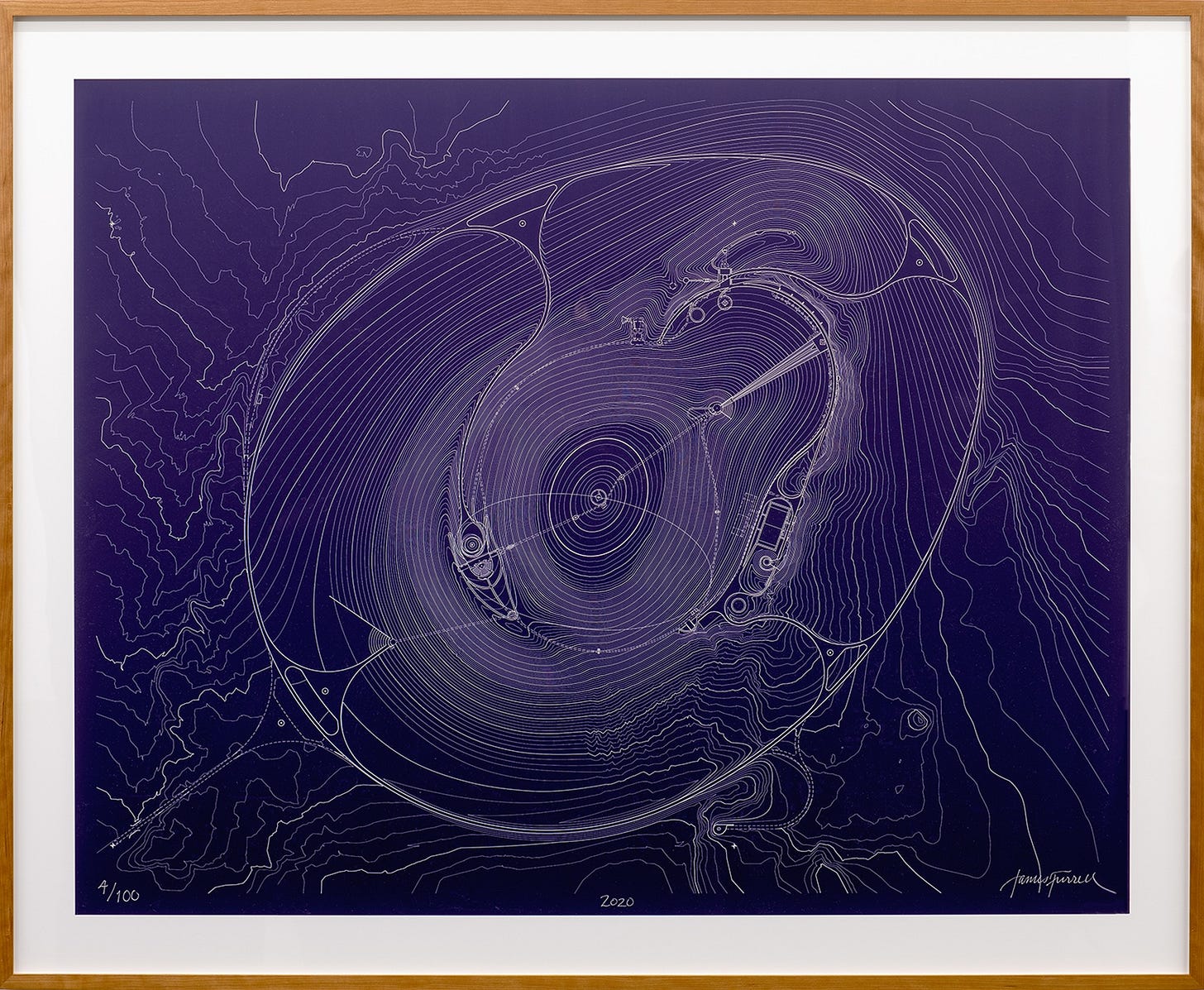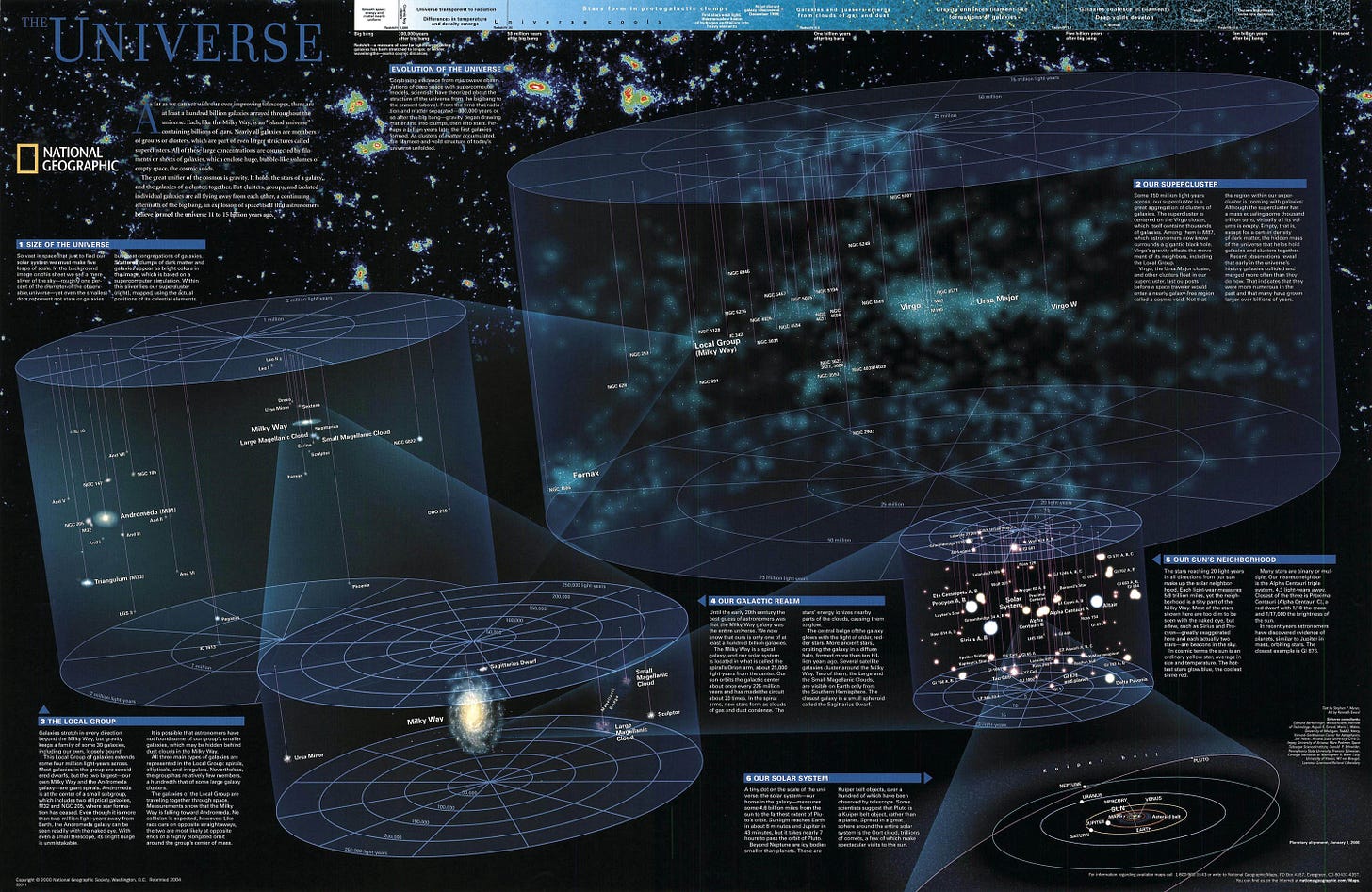“What we plant in the soil of contemplation, we reap in the harvest of action.”
Meister Eckhart
Several times a day, I take a moment to reflect on what I’ve been up to and what I’m doing next. It’s a gentle habit, a little check-in with myself to see if I’m moving in the right direction. When I sense that I’m not, I notice my energy sinks a little, and I feel off course.
For much of my life, I equated the “right direction” with steady progress toward specific goals: the ideal career, partner, social circle, belief system, physical condition, etc. That inner push served me well - I achieved things I’m proud of - but the experience of it wasn’t peaceful. It was tense and strained.
Lately, I've been trusting a different compass. Instead of asking how far my actions are taking me toward a distant objective, I ask whether those actions feel aligned with what’s best in me. I've found that the more I stay connected to that version of myself - the more I act from an honest core - the happier I feel and the easier everything else falls into place.
I know this sounds a little vague and abstract, but bear with me. The following notes are about cultivating self-awareness and using it to navigate the delicate balance between ambition and a centered life.
How to Live
Awareness
Ambition
Action
Afterword: Renaissance Thinking
Awareness
“Two things fill the mind with ever increasing wonder and awe: the starry heaven above and the moral law within.”1
One of the most reliable ways of tuning into yourself is by cultivating a sense of immense perspective. You can do this by taking a moment to consider your “cosmic address” - a tool that serves as both a mirror and a map.
Start small, with the room you're in, then expand outward: your building, street, city, state, country, Earth, the Solar System, the Orion Arm, the Milky Way, the Local Group, the Virgo Supercluster, the Laniakea Supercluster, the Universe... whatever else is out there… and, finally, zoom back in.2
Deep Field, James Webb Space Telescope 2023
“Meditation” Series, Guy Wilkinson 2010
The exercise isn’t designed to diminish your sense of self - just the opposite. When you contemplate your place in the cosmos, you’re engaging in a kind of recalibration. The vastness isn’t a reason to care less; it’s a reminder to care more effectively - in a way that’s true to who you are.
Your decisions, values, and actions - all of them matter. Perspective gives you the clarity to ask “What is it that I really want to do here?” and the confidence to say, “That is where I will devote my energy.”
“That you are here - that life exists and identity,
That the powerful play goes on, and you may contribute a verse.”3
Ambition
Let’s now reclaim the word “ambition.” In many thoughtful communities, ambition has become something of a taboo - a symbol of ego, status-seeking, and the obsession with money, glamor and power.
If we’re being honest, it’s unrealistic to pretend that we won’t care about these things, at least to some degree. Who doesn’t want to advance their career, feel financially secure, look their best, and have a little influence? The more interesting question to ask is, “Why do we judge ourselves for it?”
The mistake lies in confusing both means and ends. Ambition itself isn’t problematic (it’s as natural as our need to develop), and “worldly” concerns aren’t inherently shallow (they’re part of a modern life). With a little ingenuity, both the drive and its targets can easily be recast with noble intentions:
Instead of seeing professional success as “climbing the ladder”, we can reframe it as the pursuit of growth and self-expression.
Instead of seeing money as a marker of self-worth, we can understand it as a tool for creating freedom, generosity and peace of mind.
Instead of seeing beauty and fitness as points of comparison or external approval, we can see them as appreciation for our bodies and health.
And rather than seeing influence as something we use to control others, we can see it as a force to use for them and serve the collective good.
In essence, rather than abandoning our aspirations, we can learn to balance them with qualities that give them depth. By aligning our determination with a richer sense of purpose, we transform it into a meaningful statement of who we are. Ambition, at its best, isn’t something to reject - it just calls for a little reshaping.
Roden Crater Site Plan, James Turrell (Expected 2024-2025)
Action
We’ve explored how awareness can clarify our priorities and how ambition - when aligned with higher thinking - can serve meaningful ends. The final step is to bring things back to the present moment, where self-connection meets the small choices of everyday life.
Standard advice might suggest a set of reflective questions:
What energy am I bringing into this? Is it aligned with who I want to be?
What’s something I can learn from this situation, even if it feels familiar?
Can I make my interactions today a source of service to others?
These are all useful, but sometimes they feel a bit stale to me. I’d rather recommend something unexpected, something with a little more vitality in it: the defiance of routine. Instead of only asking questions, try this:
Over the next week, pick a few small “rules” you normally follow and break them. Work from somewhere unusual, ignore a minor protocol, or pause a task to investigate a side curiosity. The point isn’t to do something overly irresponsible; it’s to honor your sense of self through playful experimentation.
In these brief moments of spontaneity, we’re reasserting our autonomy and reminding ourselves that we’re the architects of our own experience. Our approach, our attitude, our actions - all of these are within our reach to actively adjust. By breaking out of routine, we move toward a life that isn’t just lived, but authored - one that resonates and feels genuinely our own.
No Swimming, Normal Rockwell 1921
Afterword: Renaissance Thinking
Renaissance. The word conjures images of cathedrals, masterworks, and the height of human flourishing. Yet at its heart, a renaissance isn’t confined to history - it’s an attitude. It’s about choosing to see the world as rich with potential and nurturing a personal revival of curiosity, creativity and hope.
Learning to live requires renaissance thinking. It, too, is a movement of the mind, and it starts with a willingness to reimagine what life could look like if we approached it with fresh eyes. It’s not a pretend thing. It’s not a feel-good program. It’s a vision that comes from deep within, and then grows and grows and grows…
It takes patience. It means keeping an open dialogue with ourselves, staying connected, adjusting course, and refining our ideals. But if we commit to it - if we add awareness to our ambitions, artistry to our actions - we too can create a life that feels truly inspiring.
Remember: Most people stay in unsatisfying situations not because of any immovable limitations, but because they overlook what they could do if they rediscovered a way to dream.4
Florence, Italy, Fede Roveda 2019
Critique of Pure Reason, Immanuel Kant
“O me! O life!”, Leaves of Grass, Walt Whitman
Confidence: The Art of Self-Belief, The School of Life








